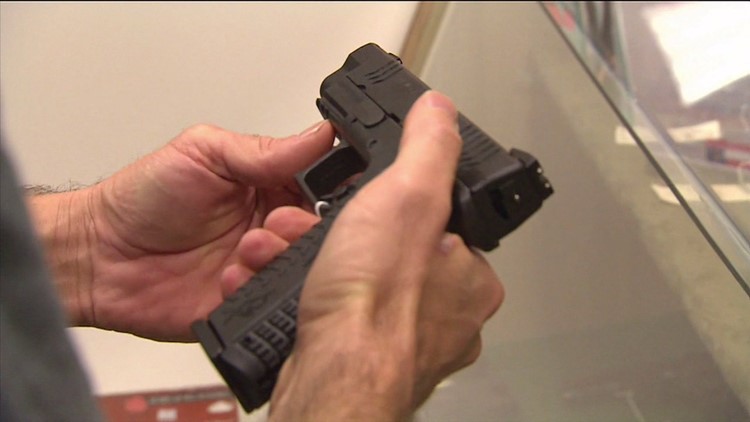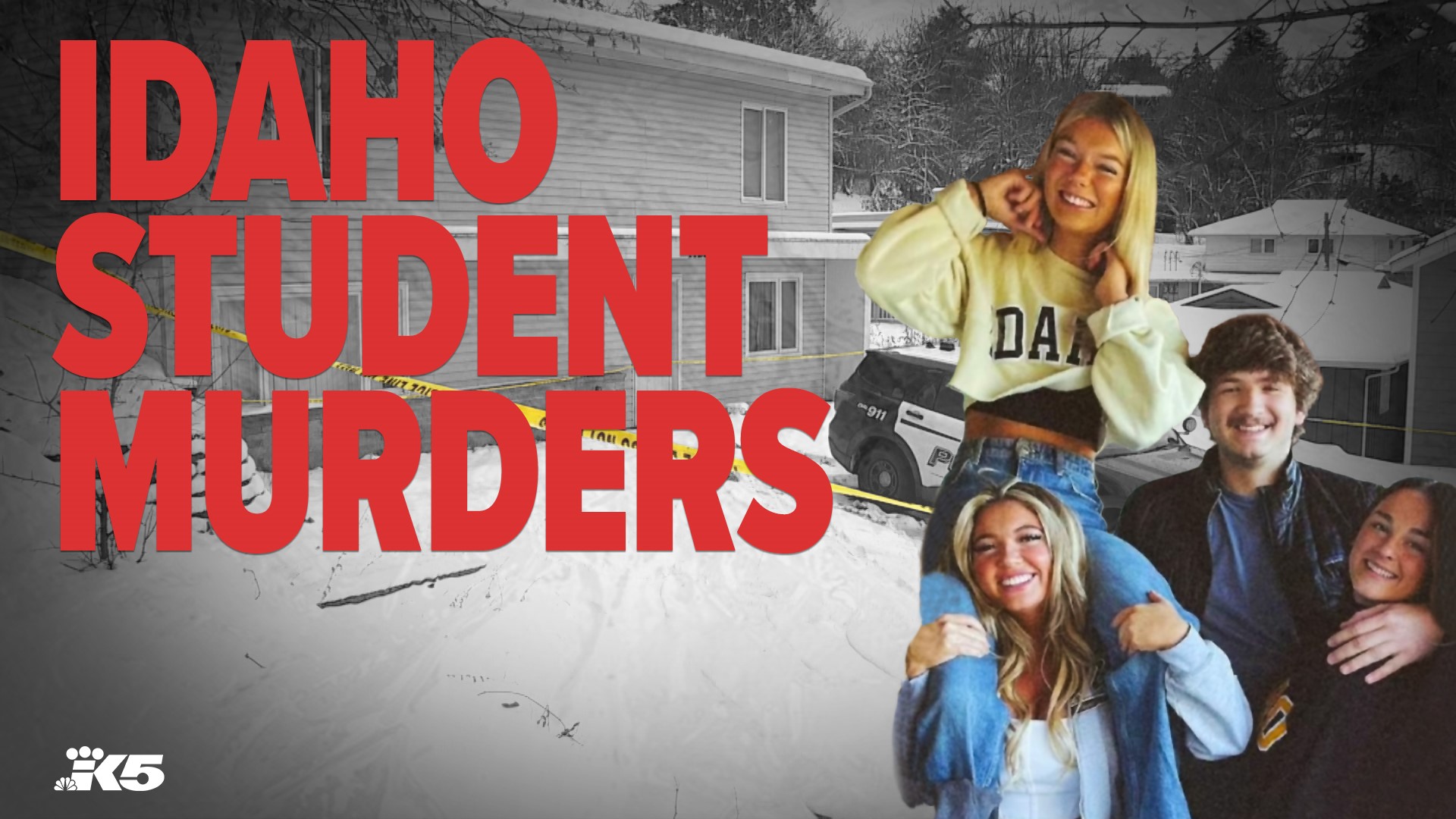The state’s special counsel on gun violence, created by Governor Tom Wolf via executive order in August, held a public hearing in York today. The counsel has gone to different hearings across the Commonwealth to discuss different gun violence issues. But, this was the first time counsel talked about preventing suicide by firearms, which is the leading cause of firearms-related deaths in Pennsylvania.
Restricting access to firearms was not a main point of the conversation, but getting gun shops to learn more about mental health when someone buys a firearm. This included teaching people who buy guns how to securely store them. The idea is if that someone feels lost or hopeless they won’t or can’t turn to guns.
“Suicide does not discriminate. There is not a specific population that is higher risk than other populations,” said clinical psychologist Matthew Wintersteen. He and other panel members told the audience, people dying by suicide with a firearm is becoming a public health problem.
Records from the Pennsylvania Department of Human services show more than 2,000 people died by suicide in 2017. About 60% of those people used firearms. Those statistics line up with a national trend, according to data from The U.S. Centers for Disease Control and prevention, which shows 59.99% of people died by suicide using firearms the same year.
“We know if we can reduce access to firearms when someone is suicidal we can potentially save lives by doing so” Wintersteen said. WHO also said firearms are one of the most common methods for suicide, and recommended limiting access to them to bring reduce suicide rates.
The American Medical Association’s JAMA Pediatrics medical journal published a study on safe gun storage in the U.S. earlier this year. It showed if parents locked up all of their guns, then up to a third of gun suicides and accidental deaths among children and teens could be avoided.
While suicide is the leading cause of firearm-related deaths in Pennsylvania, the counsel was part of a larger plan by the Governor to tackle gun violence after a series of shootings over the summer made national headlines. One of those incidents happened right here in Pennsylvania.
In early August, two deadly mass shootings in El Paso, Texas, and Dayton, Ohio occurred less than 48 hours apart from each other. In total, 31 people were killed by two lone gunmen.
Two weeks later, a lone shooter in Philadelphia got into an eight-hour standoff with police and injured six officers. Records show he had a history of violent and criminal activity, but still managed to obtain firearms. The Governor’s executive order also required a review of the state’s current background check process, and expanded support for gun buy back programs.
One point that stood out in the national discussion, and centered around gun control legislation talks in Harrisburg, was the mental health history of the shooter in Dayton, Connor Betts. His ex-girlfriend, Caitlyn Johnson, told the Ohio newspaper The Blade how she broke up with Betts after he started to show troubling behavior. Among some issues were his fascination with shooting sprees, and how he tried to leave a threatening letter at another of his ex-girlfriend’s home. On their first date, Johnson said he showed her body camera video of a mass shooting at a synagogue.
As a high school student, Betts had a “hit list” of classmates he wanted to kill or hurt. School officials learned about the hit list and informed four of his former classmates they were on it. One classmate said Betts also had a “rape list” for girls. Betts legally purchased the rifle online and had it shipped from Texas to a store in Ohio. He used it to kill nine people, including his sister, and injure 27 others.
These issues led people to wonder why he was allowed to legally purchase firearms in the first place, and why they were never taken away from him once he started to demonstrate the disturbing behavior.
Afterwards, lawmakers in state legislatures across the country began proposing high-risk protection laws, also known as “red flag laws.” These would require someone who is deemed a risk to themselves, or others, to surrender their guns to law enforcement. Governor Wolf and other Democratic state lawmakers also called on the Pennsylvania state legislature to pass red flag laws, as well.
In September, both legislative chambers put gun control in the spotlight. The state Senate Judiciary Committee held a two-day hearing on mental health and second amendment rights, while the state House Judiciary Committee voted on 12 bills related to guns and crime. Those bills mostly focused on updating state law with federal law, so people who commit certain crimes cannot own a gun.
House Judiciary Committee Chairman Rob Kauffman, R-Franklin County, refused to consider any red flag bills proposed by house democrats. At the same time the hearings and votes were held, people carried their guns outside the state Capitol as a sign of protest against stricter gun laws.
Governor Wolf expressed his outrage with the Chairman for not considering the red flag laws and some other gun safety bills, “we should be taking action to improve gun safety and reduce gun violence, not going in the opposite direction” He said. “Yes, we have the Second Amendment, but we also have people who really would like to have the right to live lives free of fear of being killed simply because they’re going to the mall or because they have a loved one who they’re concerned and know might have an issue.”
A study from the Gun Violence Archive shows Pennsylvania ranks 16th in the country for total gun deaths based on its population size. That study looked at more than 1,900 mass shootings since 2014, where four or more people were killed or injured. The study singles out Philadelphia and Pittsburgh for making up 2/3 of the state’s mass shooting incidents and casualties. The worst of which was the Tree of Life Synagogue shooting in October 2018, where 11 people were shot and killed.
Generally speaking, the number of firearm-related deaths in Pennsylvania every year is going up. Statistics from the CDC show more than 1,600 deaths, including suicides and homicides, were caused by firearms in 2017. That’s up by more than 200 deaths since 2014. Pennsylvania ranks 4th highest in total number of firearm-related deaths in the United States. Florida is 3rd, and Georgia is 5th. The worst was Texas, which had more than 3,500 firearm-related deaths.
The special counsel on gun violence still has two more public meetings to hold in the state. Afterwards, they will review their findings and issue recommendations on how to prevent the different forms of gun violence.



